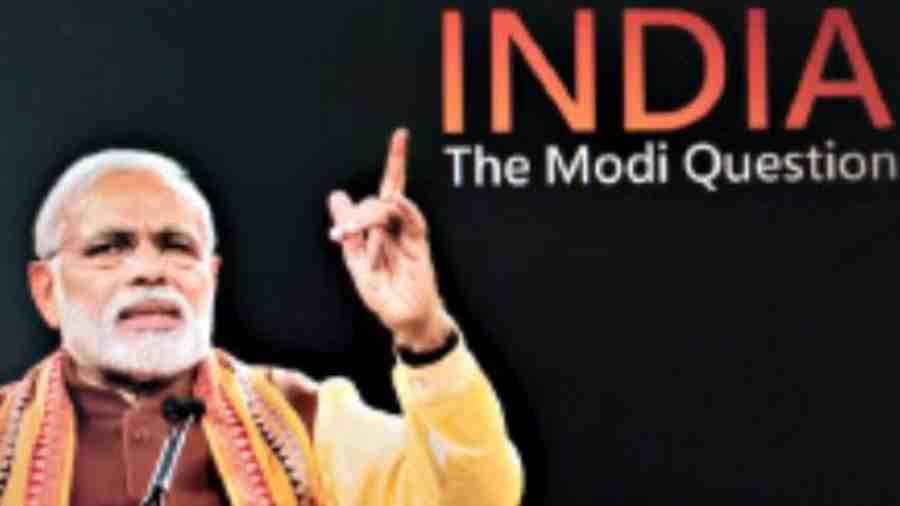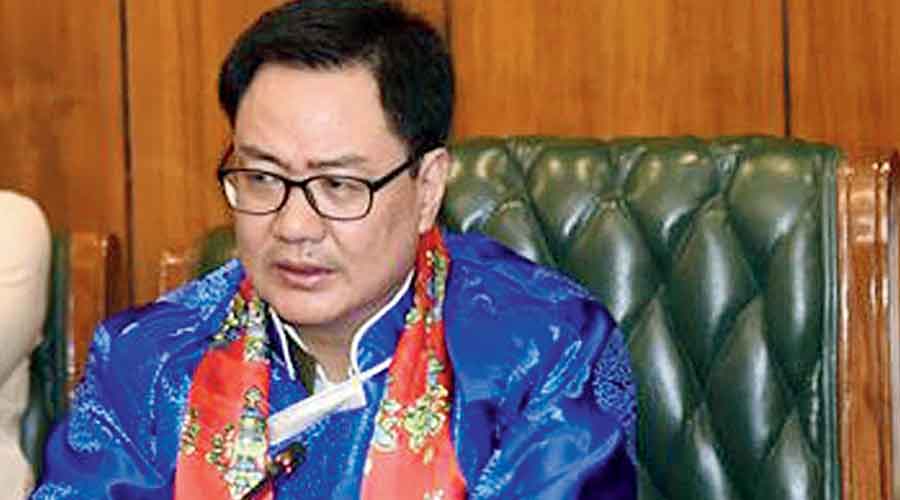Students’ groups at two central universities have sought to defy the Union government by screening the BBC documentary, India: The Modi Question, on their campuses.
Students at the Central University of Hyderabad screened the first part of the two-part documentary on Saturday evening after learning of reports that said the government had directed YouTube and Twitter to block access to links to the film.
The JNU students’ union will screen the documentary at its office hall on Tuesday evening, according to posters the union issued on WhatsApp on Monday, braving a threat from the university authorities.
The government has not officially banned the documentary, which takes a critical look at Narendra Modi’s role as chief minister during the 2002 Gujarat riots, but has called it propaganda that undermines India’s sovereignty and integrity.
JNU and the Central University of Hyderabad, where Dalit PhD scholar Rohith Vemula committed suicide over alleged caste discrimination in 2016, have been at the forefront of student protests against various acts and policies of the Modi government.Nitin Raj, an MPhil student at JNU, said a link to the documentary was available on social media. The students plan to use a projector to screen the documentary at the union hall, which can accommodate about 200 people.
JNU registrar Ravikesh issued a notice calling the proposed screening an “unauthorised activity” and threatening “strict disciplinary action” if it were not cancelled.
Nitin said no permission was needed to screen a film at the students’ union hall.
Over 100 students attended Saturday’s screening at the Hyderabad university. Afsal Hussain, president of the Fraternity Movement, which organised the screening, accused the government of trying to silence anyone who spoke about the Gujarat pogrom.
“We saw the film. We got a sense that the film gives a truthful account of the carnage. But the State always wants to conceal any truth that can perpetually disturb it,” Hussain said.
“The government’s action is an attack on the freedom of expression. So we screened the documentary in remembrance of the Gujarat victims, as the government wants every memory of the pogrom and the government’s role in it to be erased.”
Hussain said the university authorities had not contacted the organisers of the screening although he had heard that some students had lodged a complaint with the campus administration citing the government’s stand on the documentary.
A senior official at the Hyderabad university said action was being contemplated against the organisers of the screening since they had not sought permission for the event.
The JNU registrar’s notice said: “No prior permission for this event has been taken from the JNU administration. This is to emphasise that such an unauthorised activity may disturb peace and harmony of the university campus.
“The concerned students/ individuals are firmly advised to cancel the proposed programme immediately failing which a strict disciplinary action may be initiated as per the university rules. This issues with the approval of the competent authority.”
Nitin said: “The students’ union office-bearers decide on these kinds of public discourse activities. There is no rationale for calling it ‘unauthorised activity’.”
He said the government did not want to face any questions on the Gujarat riots.
“Why is (the documentary) not being made available to the people? Let the people see and decide for themselves. If the government has nothing to hide, why should it call the film a propaganda piece?” he said.
“There has to be some truth in it (the documentary). The government wants to control information and the public discourse. Our point is that there should be a discourse on it.”











